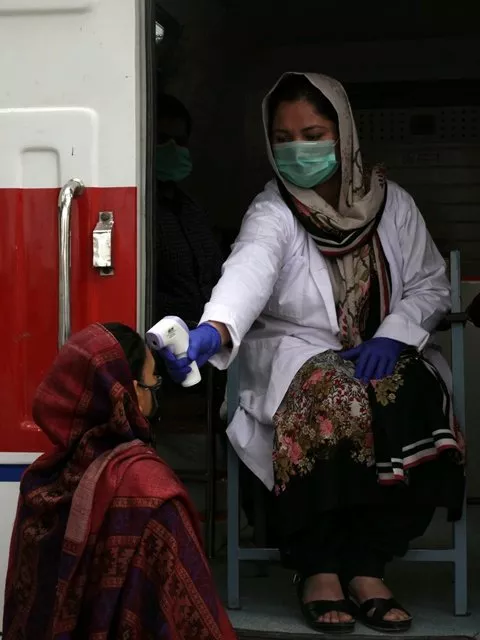Dispelling widespread misconceptions about COVID-19
UK-based medical researcher says coronavirus may not necessarily be deadly, but it’s highly contagious
ABBOTTABAD: As the number of COVID-19 cases across the world exploded in a matter of weeks, new information about how the potentially deadly virus behaves and spreads came to light. Although there is a lot we still don’t know about the mysterious contagion, we know considerably more now than we did before it became a pandemic.Even so, many around the world still know next to nothing about the novel coronavirus and a lot of misinformation about it continues to spread faster than the disease itself.
To clear some of these misconceptions, The Express Tribune spoke to Dr Abidullah Khan, an award-winning UK-based medical researcher from Battagram district of Khyber-Pakhtunkhwa, about the virus itself and preventive measures.
‘Don’t take it lightly’
“Contrary to popular belief, COVID-19 is not just a threat to old people,” Dr Abid said. “Yes, roughly 80 per cent of cases have displayed only mild, almost unnoticeable symptoms. Hospitalisation, so far, has been needed in just 15 per cent of the cases and intensive care in even less cases, maybe four or five per cent.”
“But, in cases where it develops into a serious illness, it has been more dangerous for young seemingly fit people than for the elderly or those with pre-existing health conditions,” he added.
And while the percentages Dr Abid mentioned may not seem too alarming, he warned that the virus’ highly contagious nature made it a severe threat. “A person with COVID-19 spreads the virus to 2.2 people on average. This means if you have a population of 600,000 infected with it, they can infect 1.5 million more.”
“We see this pattern around the globe. It took 67 days for the first 100,000 cases to emerge but the next 100,000 emerged in just 11 days. In just a week after that, we had more than 500,000 cases worldwide and now the virus seems to be infecting 100,000 a day,” he said.
Less masks, more distancing
“Luckily, the virus is a droplet and not airborne. Since droplets can only travel at most two metres, social distancing is the most effective way to curb its spread,” Dr Abid explained. Wearing a mask alone, however, would not prevent one from being infected, he cautioned.
“Masks are necessary for those who have developed a cough and have isolated themselves already. For the general public, they can do more harm than good,” he said. “Even for medical professionals, it is not a foolproof solution.”
According to Dr Abid, for masks to be effective, they have to be ‘fit-tested’ for the individual who is to wear them. “That is why, medical professionals need more advanced masks, like the 3M 7500.”
Mutating already
Dr Abid revealed that the novel coronavirus has already split into two different strains. “The first one of these, the ‘L’ strain, is more dangerous and could partly explain the higher number of serious cases in western countries,” he said. “The second one, the ‘S’ strain, appears to be less potent and may account for the low fatality rate in Pakistan so far.”
According to the researcher, another factor for the comparatively low number of serious cases in Pakistan could have to do with stronger immune systems. “In Pakistan and Afghanistan, people generally encounter more infections due to living conditions. As such, their immune systems are better prepared to combat new viruses,” he said. “This could be another reason why COVID-19 has been deadlier in developed nations.”
On the topic of detecting COVID-19, Dr Abid said the tests used right now are not 100 per cent reliable. “Between 30 and 40 per cent of tests result are false negatives. As such someone discharged for testing negative could still be carrying the virus,” he explained. “The only solution is to be vigilant and to continue to take precautions.”
That said, Dr Abid stressed not everyone with a cough or breathlessness is infected with COVID-19. “There are hundreds of causes for these symptoms, so people should not rush to hysteria,” he advised.


COMMENTS
Comments are moderated and generally will be posted if they are on-topic and not abusive.
For more information, please see our Comments FAQ